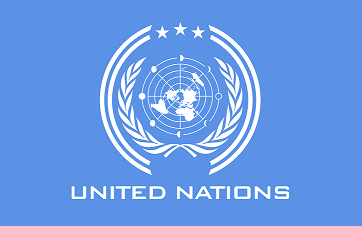
The United Nations Environment Programme (UNEP) hosted the Forum for Insurance Transition (FIT), which recommended establishing an International Taskforce on Climate Resilience and Transition Insurance.

The COP30 Insurance Communiqué, titled “Insuring the Transition,” urges a coordinated approach to lowering climate risks, enhancing insurability, and fostering inclusive, resilient, and sustainable communities and economies. This announcement precedes the 2025 UN Climate Change Conference (COP30) in Belém, Brazil.
The statement emphasises the insurance sector’s threefold function as risk managers, risk bearers, and institutional investors. It also emphasises that these functions and expertise be acknowledged in international policy frameworks and integrated into national strategies and action plans for climate and biodiversity.
The taskforce will evaluate and map climate-related risks, losses, and gaps in insurance coverage across regions, sectors, and income levels under various climate and environmental scenarios, providing a foundation for equitable and effective risk-sharing strategies.
It will also offer actionable guidance to finance ministries and regulators on promoting loss prevention, enhancing insurance markets, and developing more equitable and sustainable methods for sharing risk.
The communiqué notes that the taskforce can bolster the ability of governments, finance ministries, and supervisory authorities to manage climate and environmental risks in a structured way, including establishing the position of a country risk officer to spearhead climate and disaster risk reduction initiatives.
The forum seeks to drive insurance and finance toward supporting the transition to clean energy, nature-positive initiatives, and resilient infrastructure by identifying policies that encourage insurers to take a more direct role.
It will foster the conditions necessary to advance catastrophe risk modeling and develop risk transfer solutions that broaden access to affordable and sustainable coverage.
The taskforce will examine policy options to make insurance more accessible and reasonably priced for vulnerable households, marginalised communities, MSMEs, and critical sectors like agriculture, while avoiding measures that could deepen inequality or undermine incentives for risk reduction.
The communiqué also highlights the threat of a global insurability crisis, which could limit access to other financial services and disrupt economic activity across multiple sectors.
Laurence Tubiana, a key architect of the Paris Agreement and the COP30 Presidency’s Special Envoy to Europe, commented: “As society’s risk manager, the insurance industry’s message is loud and clear: economic losses and the protection gap will increase further if the emissions and adaptation gaps persist, and if we continue to destroy life-supporting natural ecosystems that build our resilience to extreme weather events.
“A global insurability crisis will exacerbate the cost-of-living crisis and present a systemic risk to financial stability. This communiqué sends a powerful signal that reducing climate risk and improving insurability require a systematic response – one that bridges insurance, finance, policy, the real economy and society. I fully support the creation of a multistakeholder international taskforce to address this challenge.”
Butch Bacani, Head of Insurance, UNEP, added: “This communiqué is a clarion call for a whole-of-society approach to reduce climate risk, protect nature, and close the protection gap. A world that is more inclusive, resilient and sustainable is a world that is more insurable. This is why COP30 is a pivotal moment in time to insure the transition and enable the future we want for present and future generations. Time is non-renewable.”
Global economic losses from natural disasters hit $368 billion in 2024, according to broker Aon’s figures, continuing a nine-year streak of losses above $300 billion, with nearly 60% remaining uninsured.





